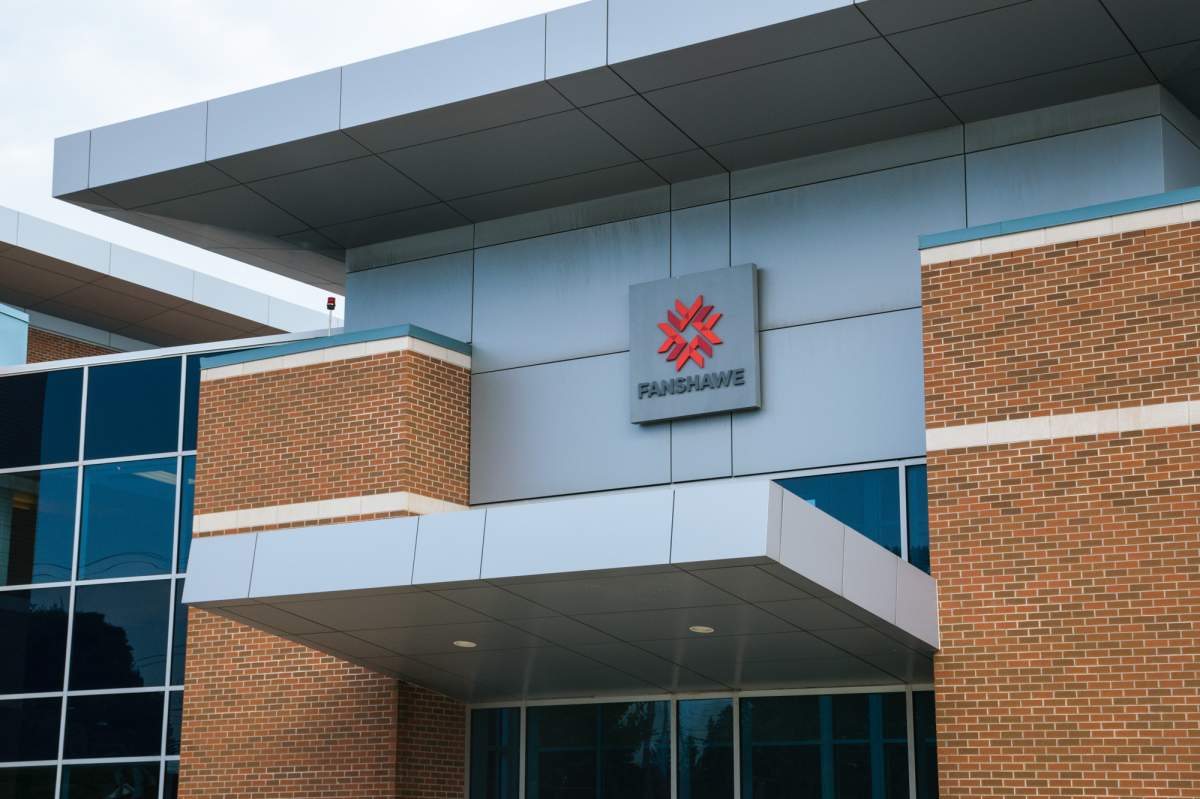Fanshawe College announced Tuesday that its planned spring concovation ceremonies would be postponed until further notice as a result of restrictions on indoor gatherings due to the COVID-19 pandemic.

Officials with the college say the more than 8,200 graduating students from its London campus will be honoured by way of a virtual graduation celebration webpage that will run the week of June 7.
It’s unclear when or if the college plans to hold the ceremonies. Fanshawe’s vice president of student services said in a statement that the school looked forward to celebrating the graduates’ achievements “when the threat of the pandemic has subsided.”
“These students will graduate under extraordinary circumstances, having persevered to complete their program during a world-wide pandemic,” read the statement from Michele Beaudoin.
“The unique skills they’ve gained during this time will be invaluable as they begin their working career.”
According to Fanshawe, many graduating students finished their programs without ever stepping onto the London campus for the duration of their program.
In an interview with 980 CFPL’s Devon Peacock that was recorded prior to the school’s convocation announcement, Peter Gilbert, Fanshawe’s chief infrastructure officer, said the college had around 7,000 students who learned online but who also came to campus when needed, and another 10,000 who were studying completely online.
“I would say the majority (of students) are online. If you were to look at our campus during the daytime, during the week, it’s very quiet. There’s pockets of activity, but for the most part, it’s a very quiet campus,” he said Tuesday.

Get breaking National news
“Our residences are at less than 50 per cent capacity, so even over there, there’s been lots of room for them to spread out and keep their distance from their peers.”
Fanshawe has so far managed to avoid the case and outbreak numbers that have been seen at its neighbour Western University.
Six active residence outbreaks linked to at least 89 cases were listed as active on the university’s campus as of Tuesday, with the largest, at Saugeen-Maitland Hall, tied to 30 infections.
“I think the combination of the separation that we’ve created either by moving desks farther apart or by installing barriers, has allowed students to work safely in their studies,” Gilbert said.
“And then as they’ve returned to residence… they basically have a small number of people that they would be around every day for meals and so on. Not nearly as busy as it would have been in the residence under a normal year.”

Gilbert noted, however, that he didn’t think there was a ‘secret formula’ that all schools can use, saying each has its own unique circumstances, including how each is laid out. Fanshawe, he noted, is a series of connected buildings, compared to universities which are often a network of separate buildings.
“That just changes people flow, and I think it’s really the people interaction which creates that opportunity for transmission to occur,” he said.
“Each of us just has to look at our facilities and our environment and say, ‘how can we best keep people separated, enforce the mask rule, and make sure that our cleaning protocols are up to date?’ If we all focus on that, I think the results will be positive.”
Fanshawe has seen some positive cases during the pandemic, including in students, faculty, and staff, but none have been found to be the result of on-campus transmission, Gilbert said.
The college is currently finishing its plans for the upcoming summer and fall semesters, with the hopes of increasing on-campus capacity conservatively through additional classrooms with small student groups, Gilbert said.
“The assumption is that vaccinations will be well underway at that point, and that they would have reached the age of our students at that point,” he said, adding that other factors are in play, including the arrival of new students from other countries.
“We don’t know what situation those countries’ vaccinations will be at, at that point,” he said.
“So we’re planning to start mostly conservatively, but with a little bit more activity, than what we’ve had in the past year.”












Comments
Want to discuss? Please read our Commenting Policy first.